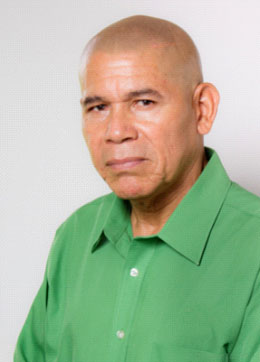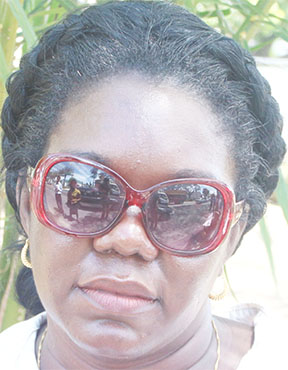Getting an abortion in Guyana is legal. It has been so for 20 years and after all the hiccups the Georgetown Public Hospital (GPH) is offering the service free of charge to all women. Minister of Heath Dr George Norton also recently gave a commitment that abortion services will be extended to all public health care facilities in Guyana.
However, the service is governed by strict guidelines which include counselling and an assessment of the woman’s overall mental and physical health. According to information from the Maternity Unit at GPH, if a woman wants to have a pregnancy terminated, she first has to see the doctor there between 9 am and 3 pm Monday to Friday. The service cannot be accessed on a holiday or weekend.
Based on the guidelines in place, the doctor determines the woman’s suitability to undergo the procedure which is done only on certain days. These guidelines include at least three counselling sessions. The woman must also be in good general health.

An official stressed that one just cannot walk into the clinic, ask for an abortion and expect it to be done right there and then; procedures have to be followed. If it is a case where the abortion process was started prior to visiting the hospital, the woman is seen at the emergency room.
While the hospital’s abortion service is a welcome move, information about it is yet to be fully launched in the public domain and this is of great concern.
Women’s rights activist Joy Marcus recounted how she telephoned the hospital and was transferred from person to person but in the end no one could tell her anything about accessing the service. Eventually, she was told that she would have to visit the facility to get the information she was seeking. This, she said, is a major problem.
She pointed out that a woman living in Berbice or Linden would have to travel to Georgetown just to get information on how the abortion procedure can be accessed. “There needs to be a lot more information out there for the public as to how it is accessible,” she said. “How can one access this without a whole lot of pushing around?
How can I live outside of Georgetown and be able to access it?” She noted that a woman should not have to travel to Georgetown Hospital when there are public hospitals in Linden, Berbice and Essequibo.
She called for all public hospitals to be equipped with trained staff to deal with abortions and for all medical practitioners who do the procedure to be registered.
Public education on the Medical Termination of Pregnancy is what is needed. She expressed the view that the media could be utilized for this. Marcus said television is a good medium to reach every corner of society as people may not pay much interest in the pamphlets and flyers.
Dr Norton, in an invited comment, acknowledged that it is his ministry’s duty to let “out there know what exists…what is in their best interest and what is available to them.” He informed that efforts are being made to boost the reproductive and family health campaign, under which abortion falls, particularly though the health clinics.

Abortion remains a subject that no one wants to openly talk about. While there are posters around health clinics and in hospitals on various diseases and health-related issues there are none on safe abortions or how this service can be accessed.
“I want to say this now. It is not Dr Norton pushing for abortion. It is there already. It was something which happened in Parliament,” he stressed.
He said that for him abortion is not a touchy issue. Noting the problems with maternal health in Guyana, he said the worst thing is to have an unplanned or unwanted pregnancy.
The legislation, he said, means nothing “for women if we don’t put all the means in place to get [the Medical Termination of Pregnancy] Act up and running.” He said that the Act makes provisions for the setting up of a 12-member Termination of Pregnancy Board and steps are being taken to contact various entities to ask for nominations. He said he wants to have the Board fully functionally in addition to training medical personnel on the abortion procedure.
Norton informed that some training has been done but it is limited.
Focusing on the ‘abortion clinic’ at the Georgetown Hospital, he said that it began last year end.
“It is not a walk-in clinic, you have to be counselled before the process is undertaken.”
He noted that this was the vision but he didn’t think enough efforts have been made to get the information out into the public domain, resulting in the continuation of ‘bottom house clinics’ and procedures using “knitting needles and umbrella bones.”
There is also no current publicly available data on abortion, but prior to 2009 between 4,000 and 6,000 terminations were being done per annum. That figure is believed to have been increased significantly.
While Norton could not provide figures, he said, “I think it is high. I can tell you it is high.”
He said the Act calls for private hospitals to provide the number of abortion cases to the ministry but based on his comments it appears that information is not always forthcoming.
Still taboo
Abortion in Guyana continues to be hidden under a thick blanket, continuously reinforced by a pervading social taboo.
Many in society look down on women who choose to take this step for whatever reason. A woman who may have been raped, is a victim of domestic violence, is living in dire economic circumstances or may have a desire to delay motherhood cannot openly choose to have an abortion unless she wishes to be ostracized. The Act cannot protect a woman from social scorn so many opt for unsafe procedures which in some cases have led to serious injury or death.
Marcus said making women feel ashamed and uncomfortable about having an abortion must stop. She emphasized that a woman has a legal right to choose to undergo such a procedure as it is her body to do with as she sees fit.
Marcus, who has built a reputation for being a strong advocate for the rights and well-being of grassroots women and girls, stressed that all have a role to play in removing the stigma surrounding abortion.
She disclosed that back in 1993 she was a member of the committee which was spearheading countrywide public consultations on abortion, an initiative of then health minister Gail Teixeira who had signalled the intent to decriminalize abortion.
According to Marcus, the consultations did not target grassroots women. She said predominantly middle-class people made up the committee and it was not only their dominance on the committee but the fact that they were not able to relate to grassroots women and the difficulties they faced with regard to terminating an unwanted pregnancy, that concerned her. Describing herself as a grassroots woman in a grassroots organization – Red Thread – she felt that abortions for middle-class women were easily accessible as they had access to financial support and could easily find ways and means to get it done without anyone knowing.
“This was my concern for the grassroots people because they didn’t have the money so they had to end up doing bottom house abortions.
That is very dangerous and then some of them tried their own things …Or they go to a friend who knows how to use a tablet or something …jump from a high place and all of that,” she stressed.
The locations chosen to hold the consultations were also not ideal, Marcus said pointing out that grassroots women would hardly go to the National Library or the Guyana Nurses Association building to hear people talk about something that is taboo. She recalled that a consultation forum at a location in the Region Three area attracted no one. For her the ideal would have been to hold the discussions in areas where grassroots women lived; go to them instead of them having to go to the committee.
“I had this constant battle with them about the fact that we were not reaching the people who really needed it,” she said, recalling that one-on-one engagements in communities were eventually found to be far more effective than the consultation forums which lasted a few months.
She opined that the stigma is mainly fuelled by religious beliefs and that may be the rationale for people not openly discussing the procedure. “I have experienced people who have said to women who have been raped, ‘abortion is wrong so you gotta keep this child.’ Now which could be more wrong, you having to look at a child as a result of rape to remind you every single day what has happened to you or doing a termination when the foteus is not fully developed?”
Marcus said a woman who terminates a pregnancy attracts all sorts of labels and many persons have grown up surrounded by that sort of thing.
Culture, she said, can also be blamed for the taboo that surrounds discussing abortion. “To do this, you will feel ashamed because your family will come down on you; your friends gon come down on you; the man you are living with comes down on you. It is supposed to be this shameful thing to do. It is supposed to make you this bad, this terrible person,” she said.
According to Marcus, there is need for those in the medical profession to stop looking down on the women accessing abortions and see the procedure as merely providing a service.
She called for those offering the service to give women pre and post-abortion counselling. “Sometimes people don’t want to go because the atmosphere is not friendly and they resort to the bottom house because that will be more private,” Marcus stressed while expressing the view that the abortion legislation was not properly implemented.
“Now that they are beginning to make it accessible, I would say that is a little piece that is being implemented… What kept them from doing it all these years, I don’t know,” she said, while noting that it made no sense to go to Parliament, pass a piece of legislation and not implement it. “It just goes to show that really and truly even our lawmakers don’t have regards for women and to me, … they don’t really care about the poor class of people,” she asserted noting that what had happened with this law is akin to “blatant disrespect and disregard for poor people.”
She was adamant that had steps been taken 20 years ago to fully implement the law, women who died from botched abortions would have been alive today.




